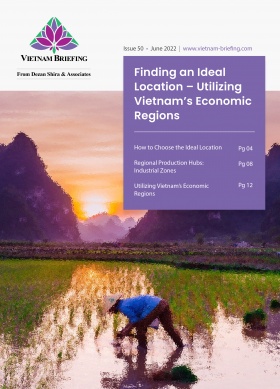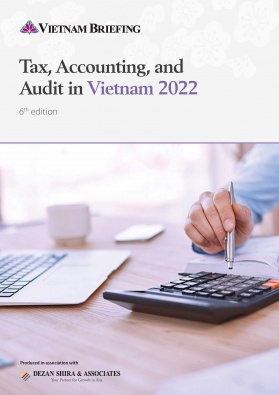Google Wallet’s Arrival Highlights Fertile Fintech Sector in Vietnam
Google has announced its Google Wallet mobile app will now be available in Vietnam.
The announcement sees Google Wallet join a long line of fintech apps all vying for a piece of Vietnam’s US$14 billion fintech market.
And it’s not just in payments that fintech solutions are taking off. A range of mobile apps targeting stock market trading and investment, along with money lending, have all come online in recent years.
Fintech is undeniably booming in Vietnam and the momentum with which it is propelling forward, for a relatively nascent industry, is showing little sign of slowing down.
Vietnam’s fintech industry in numbers
A Robocash analysis in May of this year found that the market was expected to reach US$18 billion by 2024. This represents a huge demand for fintech services in the burgeoning Southeast Asian nation.
Alongside this finding, Robocash also reported that of venture capital invested in Vietnam, 93 percent, in 2021, was directed toward digital payments.
It also found that between 2016 and 2021 fintech companies in Vietnam boomed. Over five years the number of operators increased by a whopping 84.5 percent.
There was, however, a marked decline in market entrants from 11 per year to just two. This could be a sign that the market may be reaching peak saturation. However, it could also be a sign that big players in the sector have firmed up their grasp on what Vietnamese fintech users want and need. New entrants, as such, will need to be savvy operators with a good understanding of how Vietnam’s fintech sector works.
What’s driving growth in Vietnam’s fintech sector?
Vietnam is a huge growth market for fintech. Over 75 percent of the population have internet access and this is set to climb to 82 percent by 2025 or close to an extra 7 million people.On top of that, Vietnam boasts a relatively young and tech-savvy population. According to the Ministry of Communication 73.5 percent of Vietnam’s population are currently using smartphones. It estimates this number will climb to just over 82 percent by the end of 2022.
Furthermore, a digital transformation of the Vietnamese economy is at the top of the government’s agenda. The National Digital Transformation Programme launched last year, lays out key targets for digital banking to be achieved by 2025. These include:
- 50 percent of banking operations to be fully online,
- 50 percent of the population to have a digital checking account, and
- 70 percent of customer transactions to be made through digital channels.
That said, despite embracing digital banking, there has been little regulation developed to manage the fintech sector.
Fintech regulation in Vietnam
Vietnam’s approach to the proliferation of fintech and digital assets has been steady and cautious. To speak of, there is very little fintech-specific regulation. There are, however, a number of regulations in other sectors that may be relevant to fintech operators.
For example, Decree 101/2012/NĐ-CP, issued in 2012 and covering non-cash payments can be applied to fintech payment providers though it doesn’t mention them specifically.
Developing a fintech sandbox
To capitalize on the opportunities fintech presents the government is taking steps toward creating a fintech sandbox.
This sandbox would be a test area for credit organizations and financial institutions to develop new technologies, for regulators to assess the risks and benefits of fintech for the consumer, to reduce the risks consumers face using fintech products, and to determine which regulatory authorities will be responsible for regulating the sector.
This would be something akin to sandboxes in other Southeast Asian nations like Singapore, Thailand, or Malaysia.
That said, though a draft of a decree outlining a possible fintech sandbox program has been circulated it may still be some time before it is approved.
The status of cryptocurrencies and digital assets
Cryptocurrencies, for all intents and purposes, are not legal in Vietnam.
The State Bank of Vietnam (SBV) has been very clear about this, in an official dispatch in 2017 stating that:
“Virtual currency in general, and Bitcoin and Litecoin in particular, are not currencies and are not legal means of payment according to the provisions of Vietnamese law. Issuing, supplying and using virtual currency in general and Bitcoin, Litecoin in particular… as currency or means of payment is prohibited.”
The letter goes on to point out that using cryptocurrencies as tender may constitute an ‘administrative violation’ and perpetrators may be fined.
Peer-to-peer lending
Peer-to-peer lending is also for the most part unregulated. Although there has been some suggestion that this could qualify as credit activities in which case a license might be required from the SBV.
Notably, in the aforementioned draft decree for a sandbox mechanism, there is a provision made for exploring peer-to-peer lending services.
Foreign investment in fintech in Vietnam
Although there are extensive restrictions on foreign direct investment in financial institutions and credit organizations in Vietnam, there are none specific to fintech. This is so long as the functions of fintech are not covered by other laws.
To be clear, an app like the Google Wallet only acts as an intermediary between a financial institution or credit organization. It doesn’t actually provide credit.
In light of this, foreign investment has poured into the sector in recent years–this too could be partly why Vietnam’s fintech sector has grown so big so quickly.
The future of Vietnam’s fintech sector
Despite increased competitiveness in Vietnam’s fintech sector, Google Wallet shows that there is still room for new entrants.
Though there is a lack of regulation, with a government eager to digitally transform the economy, any regulations that do develop in Vietnam are likely to be favorable to the sector.
Furthermore, as the population of young tech-savvy Vietnamese continues to grow, and smartphone penetration proliferates even further, the fintech sector is likely to continue to boom too.
About Us
Vietnam Briefing is published by Asia Briefing, a subsidiary of Dezan Shira & Associates. We produce material for foreign investors throughout Eurasia, including ASEAN, China, India, Indonesia, Russia & the Silk Road. For editorial matters please contact us here and for a complimentary subscription to our products, please click here.
Dezan Shira & Associates provide business intelligence, due diligence, legal, tax and advisory services throughout the Vietnam and the Asian region. We maintain offices in Hanoi and Ho Chi Minh City, as well as throughout China, South-East Asia, India, and Russia. For assistance with investments into Vietnam please contact us at vietnam@dezshira.com or visit us at www.dezshira.com
- Previous Article COP27: Vietnam’s Net Zero Commitment One Year On
- Next Article No World Cup for Vietnam but Still Key Player in World Football Market
































